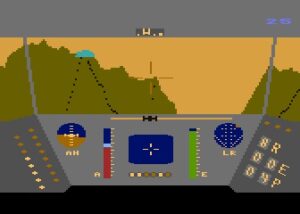 Yesterday was a shit day for writing, not only because I still don’t have a project and I’m entering month three of the one month I decided to take to shore up an outline for the next book, but because my afternoon schedule was truncated by an chiropractor’s appointment, and after a couple of days on airplanes, my knees feel like they’ve been beaten repeatedly by a pro wrestling with a steroid addiction. (I guess I that’s a redundant sentence.)
Yesterday was a shit day for writing, not only because I still don’t have a project and I’m entering month three of the one month I decided to take to shore up an outline for the next book, but because my afternoon schedule was truncated by an chiropractor’s appointment, and after a couple of days on airplanes, my knees feel like they’ve been beaten repeatedly by a pro wrestling with a steroid addiction. (I guess I that’s a redundant sentence.)
I lived in the era of bar soap, which apparently started a slow death in the late 80s, and now everyone showers with various liquid soaps, probably because, as my wife the product developer for a large commodity grocery item manufacturer tells me, the best two things to sell people are air and water, and if you can sell people less product and more water and charge them a premium, you introduce that much more money in the sacred vaults of the Cayman Islands banking system. Anyway, back when we used bars of Zest or Dial to take showers, we’d end up with these little slivers of soap, thin remnants of a big rectangle eroded to almost nothing, but leaving enough of a pairing that my cheapskate parents needed some solution to the problem. They bought this thing that looked like a cheap plastic version of a medieval weapon designed to cripple horses, or maybe the thing the California Highway Patrol extends across the road during a high speed chase to blow out a culprit’s tires. The thought was that you’d impale the soap husks onto this ABS caltrop, and after you skewered enough pieces, you’d have this composite soap bar.
(Side note: this didn’t work. The core of a soap bar somehow loses all lathering properties, and you’d only end up scraping yourself on the spikes, like some torture method devised by a splinter faction of the Catholic church in the Philippines that whips themselves bloody on Good Friday. File this under “things my parents did to save a buck that probably permanently scarred me psychologically” and move on.)
I wish I had some functional version of this soap spike thing for my time, though. I seem to have these few minutes here and there, and I should be using them to research a book or find new topics or new readers or new communities or whatever, and instead I spend them doing the Control-R knuckle-shuffle on my Facebook page. Or, if I’m lucky, I dredge the web for some useless pursuit of knowledge, like trying to find the number of times each crew member shit on the Apollo 10 mission.
So, I ended up spending an hour trying to find out if anything was going on down by my land. I own this 40 acres in southern Colorado, in the middle of nowhere, and every few months, I start the windmill lancing by pulling it up on google maps, hoping by some miracle that they put a Target store two miles away, even though the nearest town is maybe a dozen miles up the road, and has 739 residents, with a per capita income of $8,887, which is roughly the amount of money I spend annually on vitamins that do nothing except turn my piss a bright yellow. There’s always hope that each visit will bring higher quality google aerial data. This isn’t entirely in vein; they recently added Street View data on state road 159, the nearest paved road to my land. Take a look at the screenshot above – if you turn onto that dirt road, drive a quarter mile, hang a left, and drive another quarter mile, you’ll be at a cul de sac with my land to the southwest of you. But the hope is always that a combination of growth and satellite moore’s law-ing will allow me to see the trees I planted in 2007.
One thing I found recently was that a biodiesel plant opened a couple of miles from my land, in Mesita. I drove through that city ten years ago; it’s not a “city” as much as it is a collection of a half dozen buildings, like a weird black lava rock church. It feels like a ghost town, or maybe the outbuildings on the back half of a farm, long forgotten. I guess in 2004, they plopped down a new prefab steel building that looks like a giant five-bay garage, and started smashing up sunflowers into oil that’s processed into diesel and purchased by the county for their vehicles. I don’t know if this is sustainable, but it’s either that or meth, so good for them.
Another k-hole I haven’t fully fallen into is that the Southern San Luis Valley Railroad ran through this area. I don’t know exactly where or when, but it seems like they originally had something like 30 miles of narrow-gauge rail out there a century ago, which almost immediately went bankrupt and got passed around in a game of insolvency hot potato for decades, finally being fucked into nothingness in the mid-1990s. I do not have the patience to stumble through the geocities-level-quality web sites of railfans to piece together a history, but I am curious where the rails originally went, and if any of that is near my land. I would drive out there and look around, but seeing as I can stand on my land and have no idea there’s a river just a thousand feet west, there’s no way I’m going to be able to find abandoned railbed that was torn out in the 1920s.
There’s also some vague connections to the UFO community in the San Luis Valley. I think one of the cattle mutilation incidents happened in Mesita, but there’s not much in details. There was a book, called “Enter the Valley”, that had a listing of various UFO phenomena in the area, and I used to have a copy, but it was a very open-ended list of reports, which wasn’t that meaty to me. I have never been a huge UFO nut, because most of these reports are the same trope, the “I saw a bunch of lights, and I drove 17 miles down a dirt road, and saw some burnt grass, end of story”, and that doesn’t do much for me.
I haven’t been back to my land in five years, almost to the day. When I lived close, I never went, because I sort of figured I’d always be able to go. And when I lived further away, I never went, because it’s such a pain in the ass to get there. I can now drive there, in 20 hours, which is a hell of a long haul. Or I guess I could fly to Albuquerque, rent a car, and drive four hours; same for Denver. (My sister in law now lives in Albuquerque, which probably means I should learn how to spell it.) The issue is that when I’m far away from the land, I have these grand visions of building geodesic domes and digging wells and planting trees and paving roads and constructing camps and buying a dozen wrecked cars and erecting my own carhenge, but when I get there, I look at all of the desolation and nothingness and factor in that 49-minute drive to the tiny town with the nearest grocery store, and think “fuuuuuuck” and want to go back to civilization.
The idea of living on my own land is romantic, but I can’t deal with how to repair the stupid fucking dime-sized bubble that appeared at the seam of the laminated flooring in my condo; there’s no way I’ll be able to dig a well and trench out a septic field and run some power and do all of the basic crap I’d have to do to even drop a double-wide on the property. (And I warn you in advance, please shut the fuck up about building a yurt or a haybale house or a tire house or whateverthefuck hippy idea you have about sticking it to the man by not using dimensional lumber. They have zoning out there. I’ve researched this far more than you’ve ever researched anything in your life. Not gonna happen.)
Okay, enough about this. I need to dig myself out of this k-hole, put on some Hendrix, and actually write.





